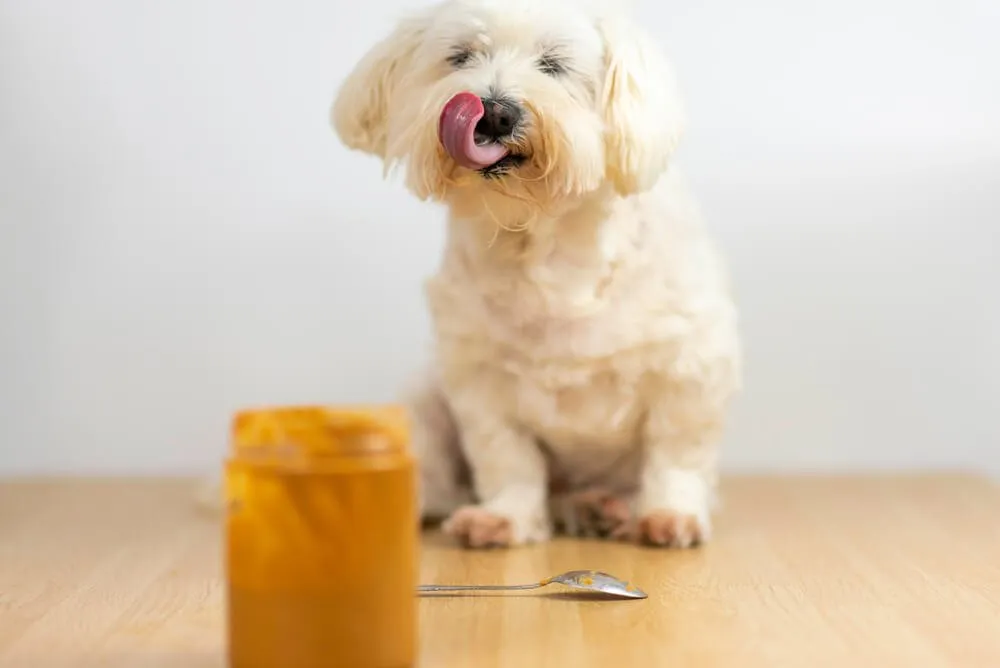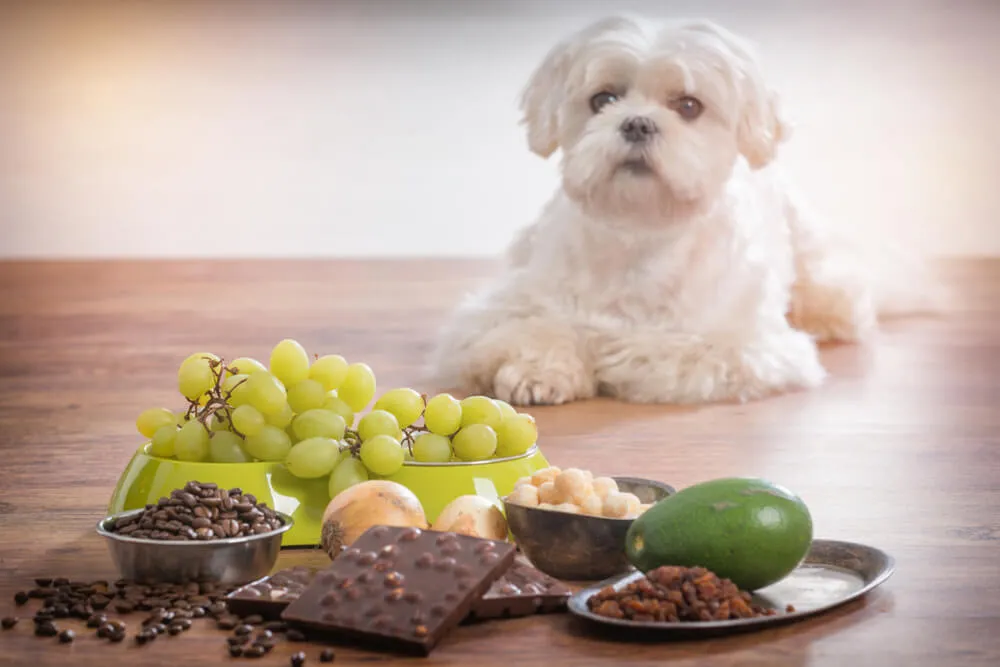As a responsible pet parent, understanding what to feed your Maltese and what to avoid is crucial for their health and happiness. While it might seem straightforward, not all dog foods offer the same taste, nutritional value, or health benefits. Similarly, simply avoiding toxic foods isn’t enough; feeding too many “tasty extras” can lead to pickiness and unwanted weight gain. Let’s delve into the best dietary choices to ensure your beloved Maltese thrives.
The Importance of a Balanced Diet for Your Maltese
A well-balanced diet is fundamental to your Maltese’s overall well-being, influencing everything from their energy levels to their coat health and longevity. Given their small size and sometimes finicky appetites, selecting the right food tailored to their specific needs is even more important. Providing a diet rich in essential nutrients can help prevent common health issues and ensure your furry friend maintains an active and vibrant life.
What Should a Maltese Eat?
When considering the best dog food for your Maltese, several factors come into play. Choosing the perfect diet means carefully evaluating your dog’s age, specific health requirements, and even their palate preferences.
Puppy Maltese Diet
If you have a young, growing Maltese puppy, their dietary needs are quite distinct. Puppies require a high-energy diet to support their rapid growth and development. This translates to frequent meals of specially formulated puppy food, rich in protein to build strong muscles, along with essential nutrients like fatty acids, vitamins, and minerals vital for their developing bodies and minds.
Senior Maltese Nutrition
For a Maltese in their golden years, dietary adjustments become necessary to support age-related changes. Older Maltese dogs benefit from healthy fats to maintain cognitive function and keep their joints supple, promoting mobility and comfort. While protein remains crucial for preserving muscle mass, certain conditions, such as kidney disease, may necessitate a veterinarian-recommended low-protein diet. Always consult your vet to tailor their senior diet appropriately.
Limited Ingredient Diets
Maltese dogs are prone to developing itchy skin, often a symptom of allergies. Many canine food allergies are triggered by dog foods containing extensive ingredient lists. Opting for a limited ingredient diet can significantly reduce the chances of an allergic reaction and gives you greater control over what goes into your dog’s bowl. This approach minimizes exposure to potential allergens, helping to identify and avoid troublesome ingredients. what foods are ok for dogs to eat
Keeping Their Appetite Engaged
Small breeds like the Maltese are notorious for being picky eaters, which can be frustrating for pet parents constantly searching for an acceptable meal. To maintain your fussy pooch’s interest, consider “home-cooked style” dog food that incorporates human-grade meats. Additionally, rotating between a variety of recipes can keep mealtime exciting and prevent boredom, ensuring they continue to eat a balanced diet.
Low-Carbohydrate Options
Maintaining a low carbohydrate level in your Maltese’s diet can help stabilize blood sugar fluctuations after meals, potentially reducing their risk of developing diabetes. Similar to humans, a diet lower in sugar also aids in preventing obesity, a common health threat for many dogs. An often-overlooked benefit of lower-carb diets is the reduced glucose availability for inflammatory diseases, as all inflammation in the body utilizes glucose. Thus, a low-carbohydrate diet could effectively minimize or limit inflammation. what is the best meat for dogs to eat
What Human Foods Can a Maltese Eat?
Many pet owners wonder about sharing human foods with their Maltese. While some human foods are safe and even beneficial, caution is key. Always ensure the food is non-toxic before offering it, and start with a very tiny amount. If your dog tolerates it without an upset stomach, you can gradually increase the portion next time. Lean meats, such as cooked chicken or turkey without skin or bones, are generally safe. Many vegetables, including carrots, broccoli, and cucumber, can be offered in moderation. Fruits like apples (without seeds), blueberries, and cranberries are also safe and packed with antioxidants. These can make for healthy, occasional treats, but should never replace their primary, balanced dog food.
 A Maltese dog enjoying a safe human food snack like a carrot or apple slice
A Maltese dog enjoying a safe human food snack like a carrot or apple slice
If your Maltese tolerates small amounts of safe human food without digestive upset, you can gradually increase the portion. what are things that dogs can eat
What You Should Not Feed Your Maltese
Just as important as knowing what to feed your Maltese is understanding what to avoid. Certain foods can be highly detrimental or even toxic to your dog’s health.
Toxic Foods to Avoid
Some human foods are outright toxic to dogs and must be strictly avoided. These include chocolate, chewing gum and other products containing Xylitol, grapes, raisins, onions, and garlic. If you suspect your Maltese has consumed something toxic, contact your veterinarian immediately. It’s also important to remember that sauces or seasonings on your meal could contain harmful ingredients, even if the main food item itself is safe for dogs. Always offer plain, unseasoned human foods. what vegetables should dogs avoid eating
High-Fat Foods
Foods laden with fat, such as greasy cuts of meat, excessive cheese, or ice cream, can cause significant health issues for your Maltese. A single high-fat meal can irritate and inflame the pancreas gland, leading to a painful condition called pancreatitis. This severe illness can manifest with symptoms like vomiting, diarrhea, intense abdominal pain, and dehydration, requiring urgent veterinary attention.
Dairy Products
Most dogs exhibit some degree of lactose intolerance, making dairy products like milk, cheese, and yogurt generally unsuitable for them. While some Maltese might tolerate small amounts of cheese without an immediate reaction, it’s not a healthy snack option and can contribute to weight gain. It’s best to avoid dairy to prevent digestive upset and ensure their overall health.
 A variety of foods toxic to dogs, such as chocolate, grapes, and onions
A variety of foods toxic to dogs, such as chocolate, grapes, and onions
Chocolate, grapes, onions, and garlic are some examples of foods highly toxic to dogs. a list of what dogs cant eat
Limiting Excessive Treats
Given that Maltese dogs are often quite selective with their food, getting them accustomed to a continuous stream of treats is not advisable. This habit can encourage them to refuse their regular dog food in favor of more palatable, often less nutritious, treats, potentially leading to nutritional deficiencies over time. Furthermore, just like humans, dogs shouldn’t consume excessive amounts of “junk food,” as this can lead to serious health problems like obesity, joint pain, and diabetes. Treats should be given sparingly and ideally be healthy options.
Frequently Asked Questions About Maltese Dog Diet
What Should I Feed My Maltese?
For picky Maltese dogs, it’s often beneficial to rotate between a variety of high-quality dog food recipes. This strategy can help maintain their interest in meals and ensure they receive a broad spectrum of nutrients from different sources, keeping mealtime engaging and preventing food boredom.
Can Maltese Eat Fruit?
Yes, some fruits are safe for Maltese dogs to eat in moderation. Good options include apples (without seeds), blueberries, and cranberries. While strawberries are also safe, they are high in natural sugars, so they should be given very sparingly as an occasional treat to avoid excessive sugar intake.
What Vegetables Can My Maltese Eat?
If your Maltese is already on a complete and balanced commercial diet, it provides all the necessary nutrition. However, if you wish to offer extra vegetables as a treat, carrots are an excellent choice. They are not only safe but also help clean their teeth and add fiber to their diet, which can promote healthy bowel movements and anal gland function.
What Foods Are Maltese Allergic To?
Any dog breed can develop allergies to nearly any food ingredient. To help reduce the risk of allergies in your Maltese, consider feeding a limited ingredient diet. This approach minimizes their exposure to common allergens, making it easier to identify and manage any potential sensitivities they may have. Consulting with your veterinarian can also help in diagnosing and managing food allergies effectively.
Conclusion
Choosing the right diet is one of the most significant ways to ensure a long, healthy, and happy life for your Maltese. By understanding their unique nutritional needs at different life stages, being mindful of both safe and toxic human foods, and implementing a balanced feeding strategy, you can confidently provide the best for your furry companion. Always prioritize high-quality dog food and consult your veterinarian for personalized dietary advice, especially concerning specific health conditions or allergies. A well-fed Maltese is a happy Maltese, ready to fill your life with joy and companionship. Explore more articles on Dog Care Story to further enhance your pet care knowledge!
